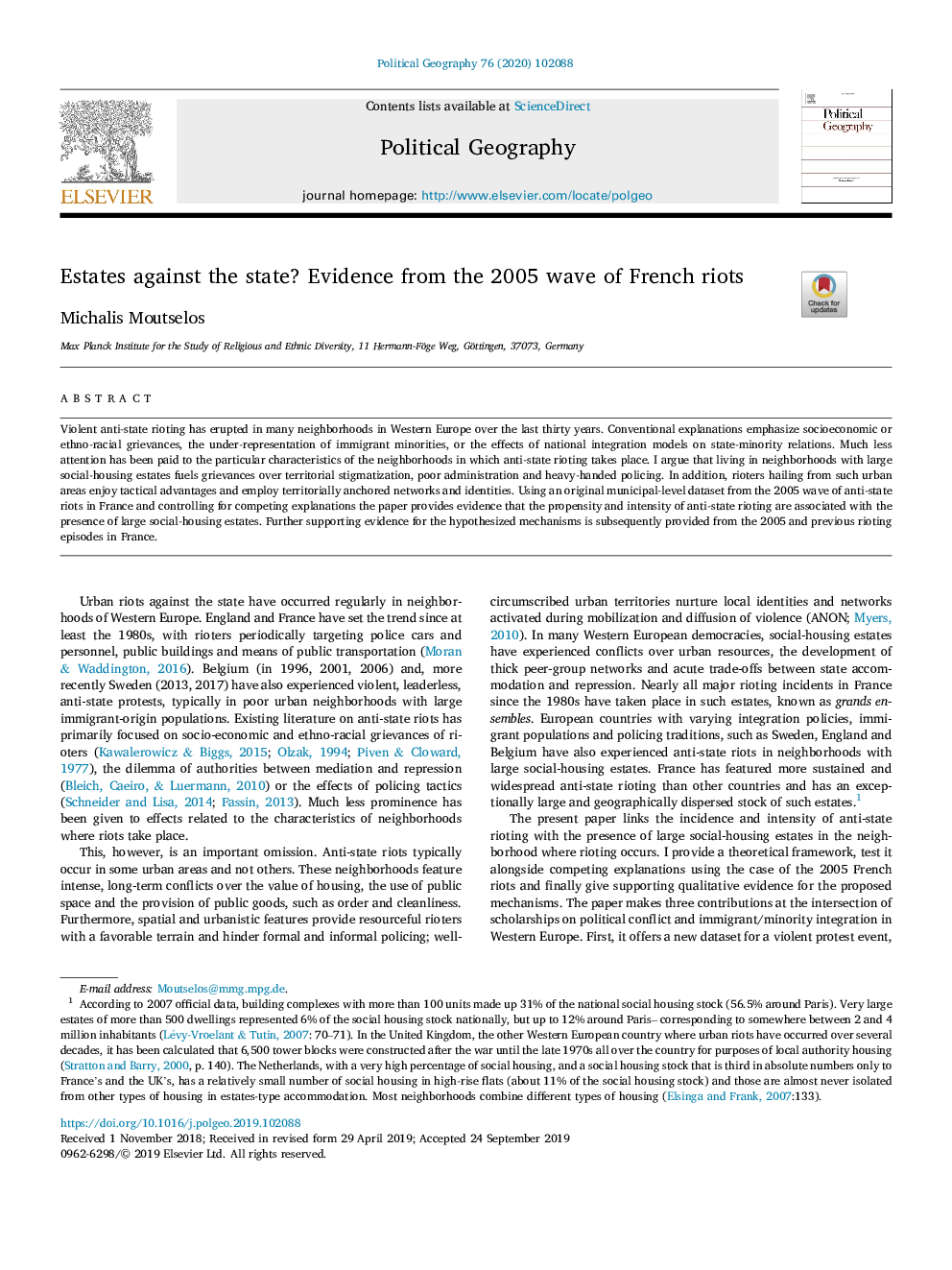| Article ID | Journal | Published Year | Pages | File Type |
|---|---|---|---|---|
| 13466659 | Political Geography | 2020 | 12 Pages |
Abstract
Violent anti-state rioting has erupted in many neighborhoods in Western Europe over the last thirty years. Conventional explanations emphasize socioeconomic or ethno-racial grievances, the under-representation of immigrant minorities, or the effects of national integration models on state-minority relations. Much less attention has been paid to the particular characteristics of the neighborhoods in which anti-state rioting takes place. I argue that living in neighborhoods with large social-housing estates fuels grievances over territorial stigmatization, poor administration and heavy-handed policing. In addition, rioters hailing from such urban areas enjoy tactical advantages and employ territorially anchored networks and identities. Using an original municipal-level dataset from the 2005 wave of anti-state riots in France and controlling for competing explanations the paper provides evidence that the propensity and intensity of anti-state rioting are associated with the presence of large social-housing estates. Further supporting evidence for the hypothesized mechanisms is subsequently provided from the 2005 and previous rioting episodes in France.
Related Topics
Social Sciences and Humanities
Arts and Humanities
History
Authors
Michalis Moutselos,
